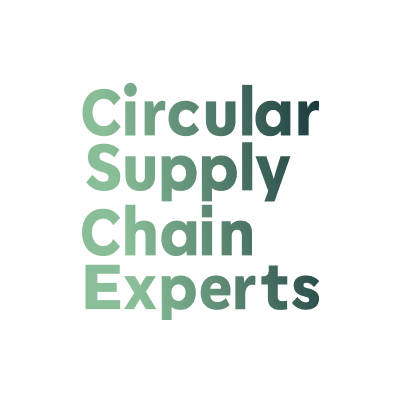Minespider - Experts in Traceability
Meet the Circular Supply Chain Experts
Key news and trends in the area of sustainable supply chains and traceability
What is Circular Supply Chain Experts?
Responsible, compliant and circular supply chains are no longer a trend, this is fast becoming a must.
Minespider launched Circular Supply Chains Experts to track all important changes in the industry with the help of the world's top experts responsible practices, circularity, and traceability for supply chains.


What is a Circular Supply Chain?
Unlike traditional linear supply chains that follow a one-way path from production to consumption, circular supply chains focus on reusing, recycling, and extending the lifespan of materials and products. This approach aims to reduce the need for virgin materials, minimize waste, and create sustainable systems. Experts highlight the benefits of circular supply chains, such as transforming waste into opportunities and reducing environmental impact. Examples include initiatives like Stellantis’ certified pre-owned parts program and Patagonia’s Worn Wear, which emphasize design for longevity and recycling. The transition to a circular economy presents significant economic opportunities, with the potential to generate trillions of dollars and create millions of jobs globally by 2030.
Featured experts
Circular supply chains are revolutionizing how we think about resources and production. Unlike traditional linear models, these systems aim to reduce how much is needed from the planet, then to keep materials in use for as long as possible.

Circular supply chains aim to use resources more efficiently by reducing the input of virgin materials and increasing the use of recycled or renewable materials. This involves optimizing resource use at every stage of the product life cycle.

A circular supply chain is vital for the lithium-ion battery industry, especially in Europe. By promoting a circular economy through the EU Battery Regulation, advancements in recycling technologies are being fostered. Advanced recycling methods efficiently extract valuable materials from spent batteries, reducing the reliance on virgin mining.

Collaboration among OEMs, suppliers, recyclers, and policymakers is critical to this system, enabling closed-loop practices such as take-back programs, data sharing for traceability, and regulatory frameworks that support sustainability. In essence, circularity for the battery supply chain is about transforming our business models and supply chain practices to prioritize sustainability at every step.


What are the upcoming trends in supply chain traceability?
We asked the top industry experts in supply chain traceability what they expect in the first half of 2024 and what trends they foresee.Experts agree that supply chain traceability enhances transparency by tracking goods from origin to consumer and is increasingly mandated by regulations. Data standardization is crucial for efficient traceability, simplifying compliance and information exchange. Continuous investments in technology are expected to improve supply chain transparency and sustainability. However, the increased reliance on technologies like IoT raises cybersecurity concerns, prompting companies to prioritize secure data collection and storage.
Featured experts
In the year ahead, I see a rationalisation of traceability solutions, with consolidation driven by both the commercial, social and environmental value that each provider can deliver as well as the degree of interoperability that is achievable. I also see a lot of efforts to standardise data governance to facilitate data sharing across jurisdictional and corporate boundaries, in the interest of the common good.

While companies and governments are increasingly addressing traceability and responsible sourcing aspects of their vital supply chains, there remain significant challenges. A toolbox of metrics, standards, certifications, and regulations, backed by cutting-edge technologies like blockchain and IoT, is deployed to tackle these hurdles. Streamlining these measures is in progress to facilitate their implementation and boost their impact.


Naturally, the increase in reliance on new technologies will bring a "trend" in investing in and increasing cyber security to identify and address new potential weak spots in the supply chain. It will be interesting to see how the stakeholders approach these latest developments in 2024.

With market restrictions being placed on material supply it is very likely that the transparency transition will be led by suppliers of raw materials rather than downstream manufacturers. To access G7 markets, suppliers of key materials will adopt traceability systems voluntarily, in order to front-load transparency data and retain preferred supplier status with downstream clients.

In my opinion, sustainability initiatives will and should be perceived as investments in the future. Right now we are implementing the largest blockchain traceability project in tin on our San Rafael mine in Peru. We expect other minerals producers to follow, and traceability to become a more common practice for all minerals, especially the critical ones.


